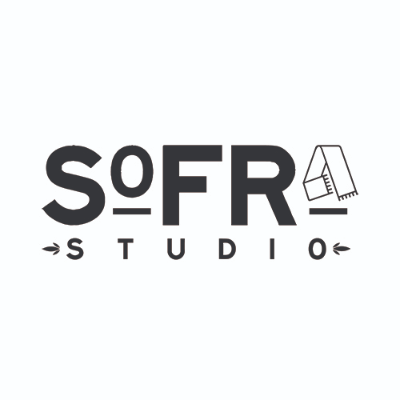hand made textiles from tunisia with faire trade licence
Material Goods/Craft/Flea/Art
Markets
About
All of our Foutas are hand loomed in Tunisia and we pay Fair Trade wages to local workers to help build the community.
100% Organic Cotton & Linen Hand loomed Textiles
Starting a textile weaving company wasn’t in the plans of a young teacher Flavio Basciano when he migrated from Palermo, Sicily to Ghomrassen, a city in southeast Tunisia, in the early 1920’s. Italy was in the midst of tumultuous economic times following World War 1 as Flavio joined the more than 100,000 Italians residents in Tunisia.
Flavio volunteered to teach French in Tunisia as France began its policy of economic and cultural expansion of the country by opening free schools and spreading the French language in North Africa. And he stayed to teach in the desert area for 20 years. While there he became fascinated by the weaving of the Jewish community and learned their weaving methods. But he succumbed to the desert heat in 1945 and moved to Téboulba, a town in the Sahel region in northeast Tunisia with much milder weather and he continued to teach French to the Muslim and Christian communities in Teboulba.
In Teboulba he opened a shop and his son Karim Basciano began to help him in it when he had time from school. Soon Karim left for Palermo and opened his own shop with a friend incorporating Sicilian culture. At the same time, the Basciano family helped Karim to purchase the wood silk. Until the 1990’s he made sarongs for use in the public baths in Tunisia, Sicily and South France.
The Tunisian economy rebounded in 1987 following a change in government and a launch of a privatization program. Karim returned to Teboulba and opened a shop where he employs young people in the community to weave foutas during the summer time so they can earn fair trade wages to pay for their further education. By 1987 Karim’s foutas were woven through a combination of southern Tunisian weaving techniques with color combinations inspired by traditional fabrics of Sicily.
Karim’s nephew Amine Mansour began selling the foutas in 2014 for multi purposes including blankets, beach towels, table covers, throws, and scarves. Amine moved to the United States in 2014 Amine and was encouraged by friends to sell them here. He named the company it Sofra Textiles after a tradition in his hometown in Tunisia. Sofra is a Turkish word meaning dinner table and is often expanded in some countries as a piece of cloth spread on the floor on which dishes of food are placed at meal times. His town residents who are mostly farmers and fishermen used to make a big meal every Friday for the poor which they called Sofra.
Today, Sofra’s foutas grace not only tables but are used as design accents like throws for the sofa or bed, clothing like sarongs and scarfs, and as bath and beach towels.
Amine works with his uncle Karim to ensure the payment of fair trade wages to the indigenous workers in Tunisia and Sicily who weave the Sofra foutas. As a result the textiles have garnered the Fair Trade designation that help you make a difference in the everyday lives of people as they build a better future for themselves, their families and their communities.
Programs and Partners
Production Practices
All of our Foutas are hand loomed in Tunisia and we pay Fair Trade wages to local workers to help build the community.
100% Organic Cotton & Linen Handloomed Textiles
Starting a textile weaving company wasn’t in the plans of a young teacher Flavio Basciano when he migrated from Palermo, Sicily to Ghomrassen, a city in southeast Tunisia, in the early 1920’s. Italy was in the midst of tumultuous economic times following World War 1 as Flavio joined the more than 100,000 Italians residents in Tunisia.
Flavio volunteered to teach French in Tunisia as France began its policy of economic and cultural expansion of the country by opening free schools and spreading the French language in North Africa. And he stayed to teach in the desert area for 20 years. While there he became fascinated by the weaving of the Jewish community and learned their weaving methods. But he succumbed to the desert heat in 1945 and moved to Téboulba, a town in the Sahel region in northeast Tunisia with much milder weather and he continued to teach French to the Muslim and Christian communities in Teboulba.
In Teboulba he opened a shop and his son Karim Basciano began to help him in it when he had time from school. Soon Karim left for Palermo and opened his own shop with a friend incorporating Sicilian culture. At the same time, the Basciano family helped Karim to purchase the wood silk. Until the 1990’s he made sarongs for use in the public baths in Tunisia, Sicily and South France.
The Tunisian economy rebounded in 1987 following a change in government and a launch of a privatization program. Karim returned to Teboulba and opened a shop where he employs young people in the community to weave foutas during the summer time so they can earn fair trade wages to pay for their further education. By 1987 Karim’s foutas were woven through a combination of southern Tunisian weaving techniques with color combinations inspired by traditional fabrics of Sicily.
Karim’s nephew Amine Mansour began selling the foutas in 2014 for multi purposes including blankets, beach towels, table covers, throws, and scarves. Amine moved to the United States in 2014 Amine and was encouraged by friends to sell them here. He named the company it Sofra Textiles after a tradition in his hometown in Tunisia. Sofra is a Turkish word meaning dinner table and is often expanded in some countries as a piece of cloth spread on the floor on which dishes of food are placed at meal times. His town residents who are mostly farmers and fishermen used to make a big meal every Friday for the poor which they called Sofra.
Today, Sofra’s foutas grace not only tables but are used as design accents like throws for the sofa or bed, clothing like sarongs and scarfs, and as bath and beach towels.
Amine works with his uncle Karim to ensure the payment of fair trade wages to the indigenous workers in Tunisia and Sicily who weave the Sofra foutas. As a result the textiles have garnered the Fair Trade designation that help you make a difference in the everyday lives of people as they build a better future for themselves, their families and their communities.
Location
Boulder, CO
Manager

All of our Foutas are hand loomed in Tunisia and we pay Fair Trade wages to local workers to help build the community.
100% Organic Cotton & Linen Handloomed Textiles
Starting a textile weaving company wasn’t in the plans of a young teacher Flavio Basciano when he migrated from Palermo, Sicily to Ghomrassen, a city in southeast Tunisia, in the early 1920’s. Italy was in the midst of tumultuous economic times following World War 1 as Flavio joined the more than 100,000 Italians residents in Tunisia.
Flavio volunteered to teach French in Tunisia as France began its policy of economic and cultural expansion of the country by opening free schools and spreading the French language in North Africa. And he stayed to teach in the desert area for 20 years. While there he became fascinated by the weaving of the Jewish community and learned their weaving methods. But he succumbed to the desert heat in 1945 and moved to Téboulba, a town in the Sahel region in northeast Tunisia with much milder weather and he continued to teach French to the Muslim and Christian communities in Teboulba.
In Teboulba he opened a shop and his son Karim Basciano began to help him in it when he had time from school. Soon Karim left for Palermo and opened his own shop with a friend incorporating Sicilian culture. At the same time, the Basciano family helped Karim to purchase the wood silk. Until the 1990’s he made sarongs for use in the public baths in Tunisia, Sicily and South France.
The Tunisian economy rebounded in 1987 following a change in government and a launch of a privatization program. Karim returned to Teboulba and opened a shop where he employs young people in the community to weave foutas during the summer time so they can earn fair trade wages to pay for their further education. By 1987 Karim’s foutas were woven through a combination of southern Tunisian weaving techniques with color combinations inspired by traditional fabrics of Sicily.
Karim’s nephew Amine Mansour began selling the foutas in 2014 for multi purposes including blankets, beach towels, table covers, throws, and scarves. Amine moved to the United States in 2014 Amine and was encouraged by friends to sell them here. He named the company it Sofra Textiles after a tradition in his hometown in Tunisia. Sofra is a Turkish word meaning dinner table and is often expanded in some countries as a piece of cloth spread on the floor on which dishes of food are placed at meal times. His town residents who are mostly farmers and fishermen used to make a big meal every Friday for the poor which they called Sofra.
Today, Sofra’s foutas grace not only tables but are used as design accents like throws for the sofa or bed, clothing like sarongs and scarfs, and as bath and beach towels.
Amine works with his uncle Karim to ensure the payment of fair trade wages to the indigenous workers in Tunisia and Sicily who weave the Sofra foutas. As a result the textiles have garnered the Fair Trade designation that help you make a difference in the everyday lives of people as they build a better future for themselves, their families and their communities.



Around the web